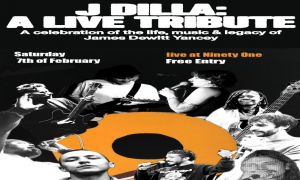
I spoke of my years at U.C.L.A.('65-'69) and how very behind I felt, while trying to attain my B.A. in Music(Composition & Theory). I felt that I had been “allowed" to graduate even though, looking back, my knowledge and skills were woefully inadequate at the time. I went on to explain that during my first 10 years in New York, I used to have dreams, nightmares about college exams, which usually contained some vision of me having to face an exam that I was not prepared for, or that I had forgotten some very necessary book that I would need. Of course, in the dream, panic sets in, and I am frantically running back to recover what I would need. Or worse yet, I was just afraid to fail.
As the years went on, the insecurity lingered, though it never completely incapacitated my humble abilities, nor my intense desire to be better, and to try to do something of weight and importance in my musical life. And so, of course, I continued to have, what I would describe as classic “insecurity dreams." The only difference was that they were not focused on 'exams' per se, but on fictional musical situations. And, often times, in these dreams, some of my closest friends and VERY respected peers would appear. In truth, they were to be the 'judges' of the depth of my talent, or lacking thereof.
Because their approval meant so much to me in my early years in New York, Michael Brecker, Randy Brecker, and Don Grolnick have all appeared in these dreams - separately, together, and in varying combinations.Dick Cavett The typical dream would be that I would have an important concert, or even my own recording, and, on my way there, I would realize that I had forgotten something crucial to the endeavor, something like my guitar, or the music. Again, the tremendous sense of panic, and then running back to retrieve what I needed or had left behind. These kinds of dreams even continue to this day, but to a much lesser degree, depending upon my life circumstances at that moment. During the many years that we all played together, the three “wisemen" - the aforementioned players - really never said much of a complimentary nature to anyone, and so it was easy for self-doubt to creep in. What I learned was that their silence was really more about their own feelings of doubt and self-torture, and really had nothing to do with me. In the end, looking for words of approval from them was a waste of time and energy. As the years went by, every so often, out of the blue, Mike Brecker would phone me just to say that he had heard a track of mine on the radio while driving somewhere, and, that it sounded fantastic, and that I was “playing my ass off." What could be more gratifying to hear than that? For me? Not much!
I am reminded of the wonderful Miles Davis DVD titled: MILES ELECTRIC: A DIFFERENT KIND OF BLUE which offers the complete “Isle of Wight" performance, and a series of incredibly revealing interviews with many of the most important players who passed through his bands during the years of “the great quintet" and well beyond. Each player, in his own way, expressed the feelings of self-doubt that they experienced while working with Miles, who never seemed to say much, and when he did, it was usually critical. However, there's a moment in the interview with the brilliant and innovative percussionist, Airto Moreira where he is talking about how he had no idea what they were doing, or if he was even playing the right things for the music. He wasn't even certain if he was “in the band." So, one night he asked Miles these questions hoping to have some sense of clarity. Airto: “Am I in the band?" And Miles said something like this to him: “Well, are you here tonight?" Airto nodded. Miles then asked, “Are you gonna be with us tomorrow night?" Airto nodded again. Finally, Miles then concluded: “So, that's all you need to know!" And that was that. In other words, Airto had been worried about nothing. He had the gig!!! The sense of fear and terror that we invent, deep inside ourselves, is often far worse than what the reality actually is!
In the end, we are all our own toughest critics. And, as it should be, nothing is really ever good enough. The journey to true artistic excellence never stops - it is just an ongoing process that seems to have a final destination, but, in truth, one can never arrive there. It remains as an apparition off in the distance, but always seemingly out of reach. This vision serves to torture us all.
Some of us are better at dealing with it than others. I have often felt that this deep-seeded existential pain, ennui is, in part, greatly responsible for the dependence, for some, on drugs and alcohol, or other addictive behaviors. Such things provide the illusion of numbing the pain of one's own fears about themselves. In the end, each of us knows our own inner truth when faced with the mirror. There is no escape, and we know it. If you've ever gone up to a great, great player and tried to compliment them after a set of music, or a full evening of music, it is likely that that player might have graciously accepted the compliment, but then launched into a discourse citing everything that was wrong with the evening for him. I have never known a great player to come off the stand and say: “Man, that was the greatest shit anyone ever played!" Never!!! There is no whooping and hollering--often times, there is only silence. At best, a quiet nod of acknowledgment, but never more than that. For each player knows exactly what transpired while playing!
And now, back to the conversation with my houseguests. After sharing such stories of classic cases of insecurity, I chose that moment to again recount what is perhaps my favorite anecdote dealing Laurence Olivier with this area of the artistic life.
I am taken back to the early '70s, just after having moved to New York, living in my dark and dank first apartment, in a basement. I was sitting, up late one lost night, and I turned on the TV to watch one of my great heroes, Sir Laurence Olivier, the highly decorated British actor and Oscar winner, doing a one-on-one interview with then talk show host, Dick Cavett. In those days, way before cable TV and the seemingly endless source of 'interviews' and inane talk, an interview on a show like Cavett's actually had some time to give both people a chance to explore something of greater depth than what we now see and hear.
For more information contact All About Jazz.




























